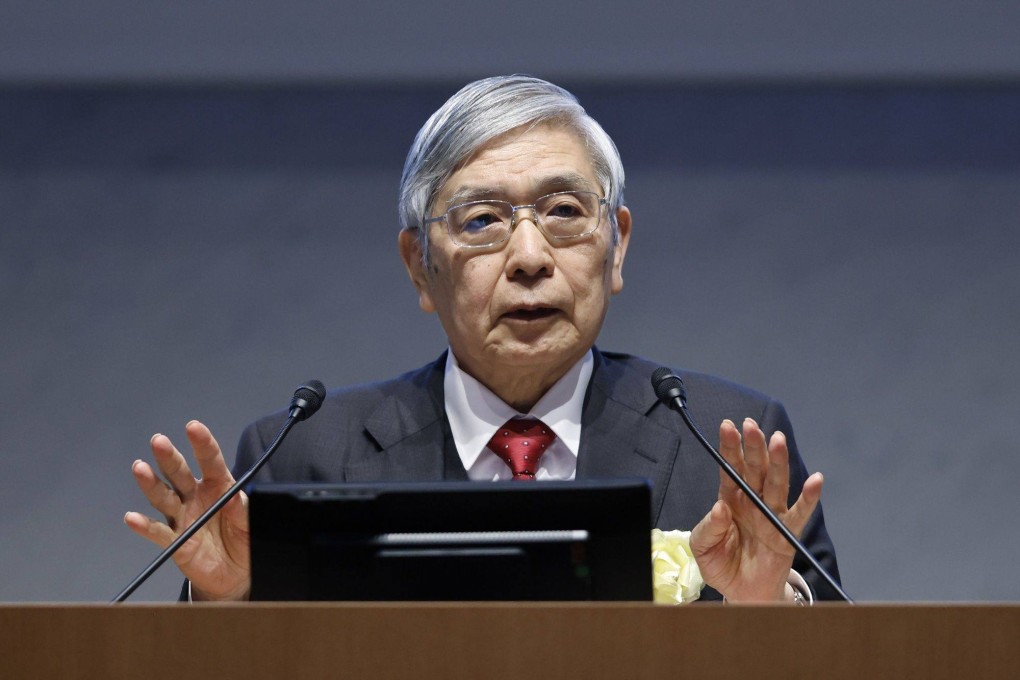Advertisement
Macroscope | Pressure is building for Japan to give up its ultra-loose monetary policy
- Rising inflation and a weak yen are prompting expectations of a policy shift and a bond sell-off. The Bank of Japan will have to move carefully to avoid market volatility
Reading Time:3 minutes
Why you can trust SCMP

Last year saw some of the biggest synchronised monetary policy tightening around the world, involving both developed and emerging-market central banks. However, the Bank of Japan was an exception.
It justified maintaining a negative interest rate policy and yield curve control measures – which have pegged the 10-year Japanese government bond yield at around zero per cent since 2016 – as a way to stimulate the economy. But both economic and technical market factors are making this policy combination increasingly difficult to sustain.
The first challenge to this ultra-loose monetary policy is Japan’s rising inflation. Nationwide core inflation (that is, excluding fresh food and energy) rose 3 per cent year on year last December. While this figure is not as daunting as the numbers in the United States and Europe, it could be a sign that inflation in Japan is finally picking up, which raises the question of whether such loose monetary policy is still appropriate.
Advertisement
Low interest rates in Japan, in contrast to sharply higher rates elsewhere, have weakened the yen substantially. This has made imported goods, especially food and energy, much more expensive in the local currency. Higher interest rates could help stabilise the yen exchange rate and reduce imported inflation.
In its January meeting, the BOJ argued that more time was needed to confirm that the current inflation momentum will prevail. This will partly depend on the spring wage negotiations between businesses and labour unions.
Advertisement
It can also be argued that Japan’s economic recovery from the pandemic is far from complete and its export sector is facing growing challenges, with weaker demand from the US and Europe as their economies decelerate. This could also make the central bank more hesitant about departing from its long-held policy.
There is also a question about the long-term fiscal health of the Japanese government if bond yields rise substantially. According to the Organisation for Economic Cooperation and Development, the government’s gross debt reached 226 per cent of its gross domestic product in 2021. Higher rates could raise interest expenses for the government.
Advertisement
Select Voice
Select Speed
1.00x
